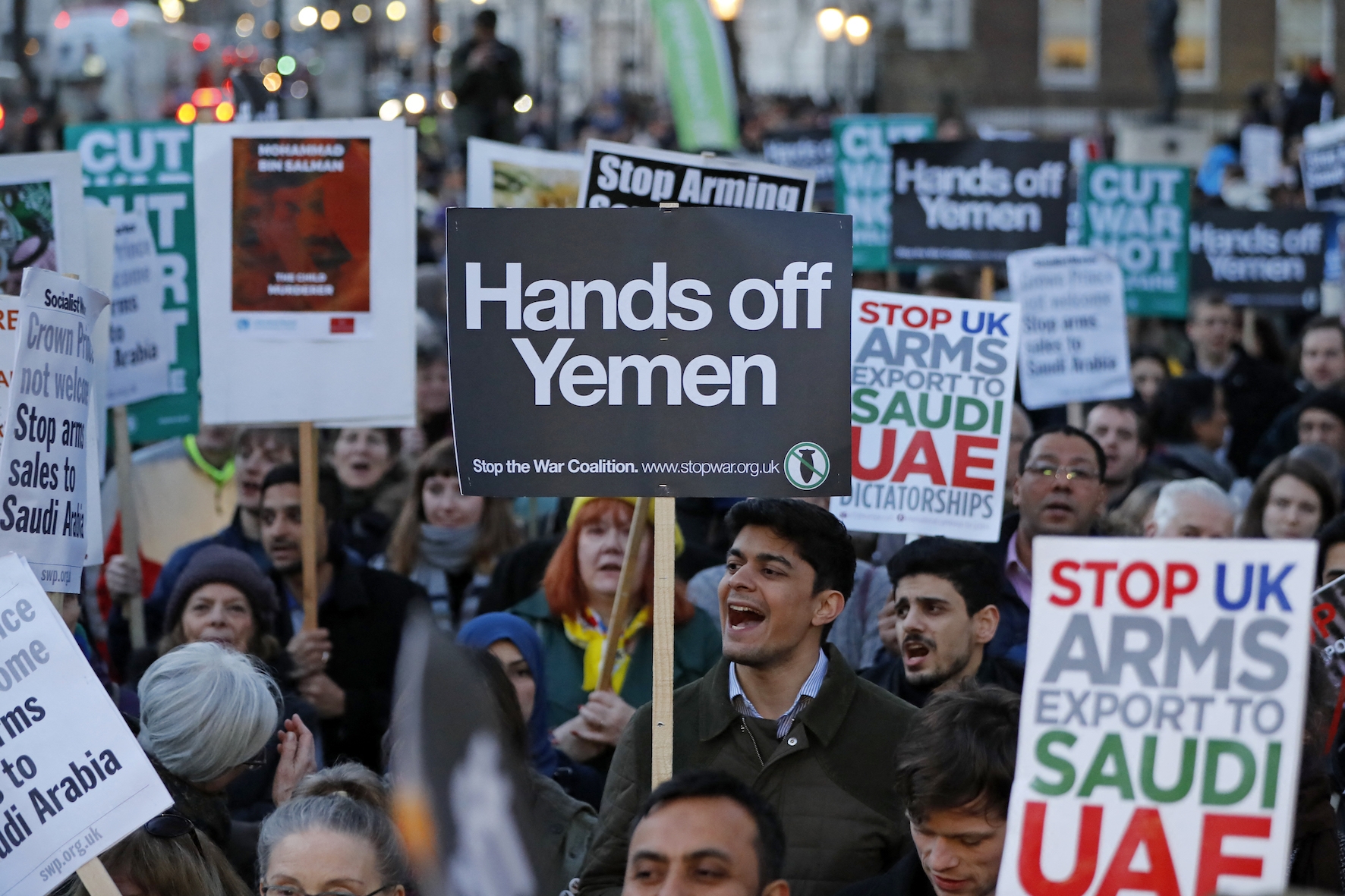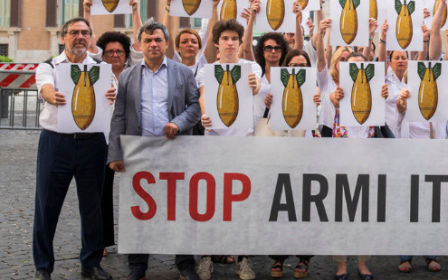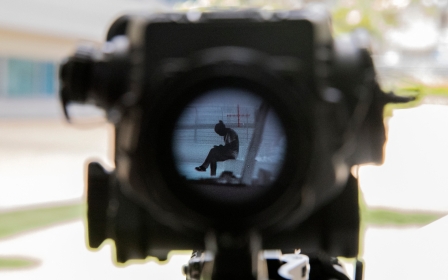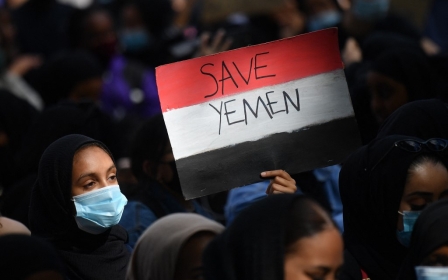Western governments chided at arms conference for 'enabling' Arab regimes to spy on citizens

Western nations and arms companies are complicit in aiding regimes in the Middle East to spy on their citizens, speakers at an international conference shedding light on the human rights implications of the arms trade, said on Saturday.
Attendees at Selling Death: why the international arms trade must be controlled, which was backed by former Labour party leader Jeremy Corbyn, decried what they said was a "corrupt" arms trade that reaped huge profits for the "global military-industrial complex."
The Egyptian human rights activist, Sherif Mansour spoke of “the quiet war” which he says takes place every day across the Middle East whereby “governments use violence against their own population to build the fear barrier to stop them from ever dreaming to be free like they did 10 years ago in the Arab Spring.”
He went on to mention that much of what happens is “enabled by western capitals through the software arms trade, the surveillance industry.”
The conference, organised by Egypt Watch, an independent research platform, took place in collaboration with the Project for Peace and Justice, founded by Corbyn, which campaigns to build “solidarity and hope for a more decent world.”
New MEE newsletter: Jerusalem Dispatch
Sign up to get the latest insights and analysis on Israel-Palestine, alongside Turkey Unpacked and other MEE newsletters
“The international arms trade is extremely profitable for the global military-industrial complex," Osama Gaweesh, editor-in-chief at Egypt Watch, said as he opened the conference.
“It is riddled with bribery and corruption which has been known to be a main source for arms co-operations.”
Abdullah Alaoudh, the director for the Gulf at Democracy for the Arab World Now (DAWN), a nonprofit organisation that promotes democracy, echoed Mansour, noting the irony taking place in western countries.
“Despite the wide-ranging concerns in the US and the United Kingdom about Saudi Arabia military intervention in Yemen, both Washington and London continued their support and continued to export arms to Saudi Arabia from 2015 to 2019 during the Yemen war, " said Alaoudh.
“These are the major democratic countries that are calling for democracy, for stabilising the region for protecting the interests of the people for supporting democratic values. Nonetheless you see these arms sales to most brutal authoritarian regimes and dictatorships in the Middle East.”
Richard Burgon, the Labour MP for Leeds East spoke of the UK’s involvement in arms trade deals, specifically in relation to Palestine and Israel.
“The British government continues to authorise arms sales to Israel despite clear evidence that the weapons of the types authorised for sale have been used in violation of international war. This means the UK is providing material support for Israel’s illegal use of force.”
Jeremy Corbyn, closed the conference by highlighting what he implied was the hypocrisy of the British government.
“We are subsiding the destruction of Yemen and then patting ourselves on the back for giving money to Yemen in order to provide replacement water supplies, housing schools, hospitals, and all the other things being destroyed in the war in the first place.”
In his final comments, Corbyn called on action to stop the international arms trade.
“There’s no point complaining about the effects of war, of human rights abuses, of children dying of cholera in Yemen or peoples homes being destroyed in various places around the world if we don’t do something to stop the sales of arms that is being used to destroy those people’s lives.”
According to a report published last month, between 2011 and 2020, the UK licensed £16.8bn ($23.32bn) in arms to 39 countries criticised for their poor record on human rights.
Earlier this year, the British government was also accused by campaigners of "putting profit before Yemeni lives" after it authorised the export of almost $1.9bn worth of weapons to Saudi Arabia since a ban was lifted last year.
In March it was reported that the Middle East saw the biggest import of arms in the last 5 years, with the US remaining the world’s largest arms supplier.
Saudi Arabia had increased its arms imports by 61 percent while Qatar’s imports increased by 361 percent.
At the start of July, Italy lifted a ban on arms sales to Saudi Arabia and the United Arab Emirates. The decision to loosen restrictions was reportedly aimed at easing diplomatic tensions with the two Gulf states.
Middle East Eye delivers independent and unrivalled coverage and analysis of the Middle East, North Africa and beyond. To learn more about republishing this content and the associated fees, please fill out this form. More about MEE can be found here.




